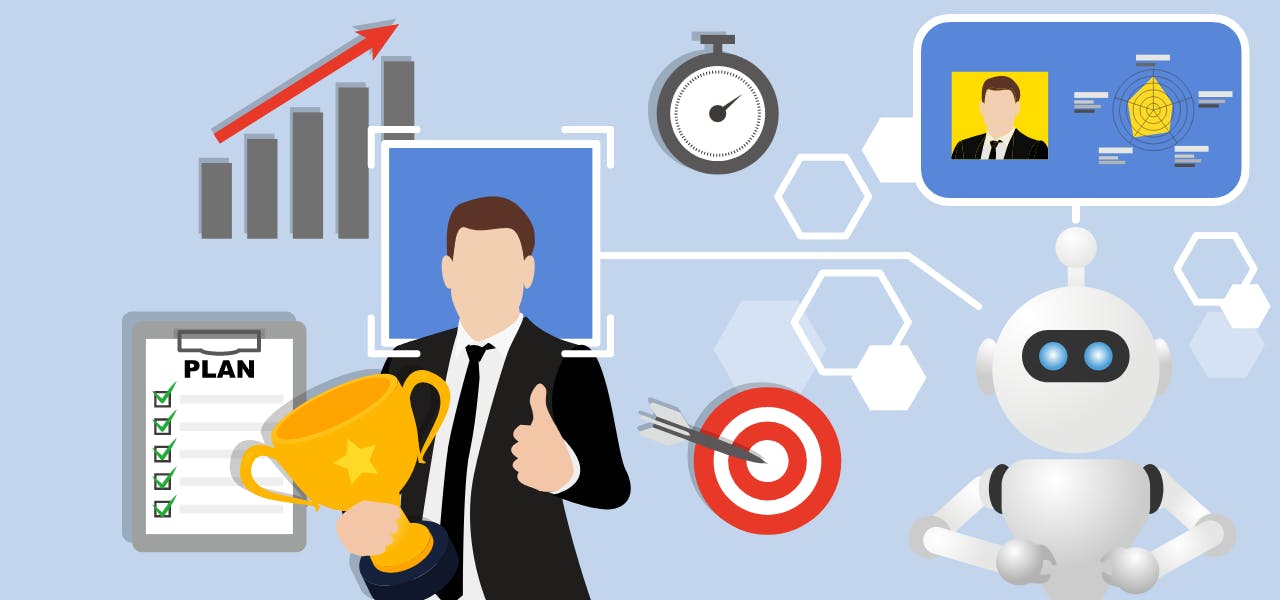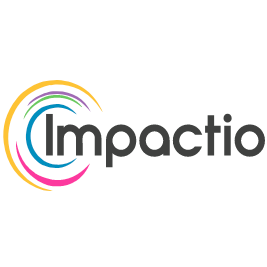Can AI Really Help with Employee Performance Metrics?

Some co-workers dread getting their annual performance review while others can’t wait to hear if they are getting promoted or not. Performance reviews vary from company to company—some involve a very quick session or review that is not taken lightly from the employee-employer side of things, while some are more detailed and involve spreadsheets, data, and very specific metrics that are measured.
Sales teams for example and financial planners have many performance metrics. This is mainly because of recorded lines that managers use to gage customer relations and high performing call center agents. TIAA, for example, is a Fortune 100 financial services organization that is the leading provider of financial services in the academic, research, medical, cultural and governmental fields, and their talk-center agents have recorded calls everyday.
This creates an incentive for employees being recorded to remain conscientious while on the line—they’re job depends on it. From month to month, TIAA managers are listening in at random to see how well their employees are doing with regard to: financial advice, problem solving, levels of conscientiousness in the face of adversity, and much more. All of these components make up the employees “grade” for a certain fiscal period of the year which correlates to their annual performance.
While all of these metrics are determined by live managers at TIAA, it does beg the question if there is any favoritism or other biases that might occur throughout the process. There’s also the question of resource allocation. If managers are spending X amount of hours per week grading their employees, that does reduce their time they could be spending on other managerial tasks. So what would happen if such an exercise moved to the AI realm?
The downside of using AI for performance review
Well, for one, it might bother some employees who begin to feel micro-managed. AI is already being developed to grade employees and much of this grading and performance review comes in the form of 24/7 software. Cogito, for example, an AI company based in Boston, has become a kind of adjunct manager, always watching employees who work at call centers and in customer service. The software pops up in the bottom right hand corner of employee screens during calls with customers, and if the customer service agent is sleepy, talking too fast, or seems apathetic, the agent gets a notification. At the end of every call, Cogito notifications are tallied and added to a statistics dashboard that supervisors can then view.
The non-stop nature surrounding this type of technology is perhaps the downside. If an employee is dealing with problems in their home life or had a bad nights sleep because they just moved into an apartment, then what? A manager might not grade them too harshly in this respect, but the AI system still will. There is a certain human touch from managers that sort of levels the playing fields in terms of organizational culture and letting things go. But AI systems don’t factor this into their algorithms. It is simply performance or not.
The benefits of AI for performance and organizational success
While such a scenario presents some controversial opinions for knowledge workers who might not always be having a good day, there are some definite benefits to AI in terms of performance review, and one of them is the predictive power of the future.
While everything we’ve discussed so far has been about past employee performance, that is, employee performance in the most recent period measured, there’s also exciting advances in technology that make AI able to predict who the best employee will be in the next fiscal period. This is the exciting part.
For example, AI software can now turn the traditional model of review on its head by analyzing data for futures or forecasting. This would allow managers to better compensate employees for what they are going to achieve, rather than just what they’ve already done.
Further, this type of recommendation is predictive but also prescriptive in nature, meaning that it differs from just describing what an employee did or didn’t do. Prescriptive recommendations are very much possible when it comes to human interaction, but they take longer and require critical thinking and represent an opportunity cost in terms of time. Having a prescriptive AI system would not be a bad thing for organizations because managers could make inferences based on what AI is telling them. And then of course discard such information when they want to simply go by their own instincts.
Related Articles

Some co-workers dread getting their annual performance review while others can’t wait to hear if they are getting promoted or not. Performance reviews vary from company to company—some involve a very quick session or review that is not taken lightly from the employee-employer side of things, while some are more detailed and involve spreadsheets, data, and very specific metrics that are measured.
Sales teams for example and financial planners have many performance metrics. This is mainly because of recorded lines that managers use to gage customer relations and high performing call center agents. TIAA, for example, is a Fortune 100 financial services organization that is the leading provider of financial services in the academic, research, medical, cultural and governmental fields, and their talk-center agents have recorded calls everyday.
This creates an incentive for employees being recorded to remain conscientious while on the line—they’re job depends on it. From month to month, TIAA managers are listening in at random to see how well their employees are doing with regard to: financial advice, problem solving, levels of conscientiousness in the face of adversity, and much more. All of these components make up the employees “grade” for a certain fiscal period of the year which correlates to their annual performance.
While all of these metrics are determined by live managers at TIAA, it does beg the question if there is any favoritism or other biases that might occur throughout the process. There’s also the question of resource allocation. If managers are spending X amount of hours per week grading their employees, that does reduce their time they could be spending on other managerial tasks. So what would happen if such an exercise moved to the AI realm?
The downside of using AI for performance review
Well, for one, it might bother some employees who begin to feel micro-managed. AI is already being developed to grade employees and much of this grading and performance review comes in the form of 24/7 software. Cogito, for example, an AI company based in Boston, has become a kind of adjunct manager, always watching employees who work at call centers and in customer service. The software pops up in the bottom right hand corner of employee screens during calls with customers, and if the customer service agent is sleepy, talking too fast, or seems apathetic, the agent gets a notification. At the end of every call, Cogito notifications are tallied and added to a statistics dashboard that supervisors can then view.
The non-stop nature surrounding this type of technology is perhaps the downside. If an employee is dealing with problems in their home life or had a bad nights sleep because they just moved into an apartment, then what? A manager might not grade them too harshly in this respect, but the AI system still will. There is a certain human touch from managers that sort of levels the playing fields in terms of organizational culture and letting things go. But AI systems don’t factor this into their algorithms. It is simply performance or not.
The benefits of AI for performance and organizational success
While such a scenario presents some controversial opinions for knowledge workers who might not always be having a good day, there are some definite benefits to AI in terms of performance review, and one of them is the predictive power of the future.
While everything we’ve discussed so far has been about past employee performance, that is, employee performance in the most recent period measured, there’s also exciting advances in technology that make AI able to predict who the best employee will be in the next fiscal period. This is the exciting part.
For example, AI software can now turn the traditional model of review on its head by analyzing data for futures or forecasting. This would allow managers to better compensate employees for what they are going to achieve, rather than just what they’ve already done.
Further, this type of recommendation is predictive but also prescriptive in nature, meaning that it differs from just describing what an employee did or didn’t do. Prescriptive recommendations are very much possible when it comes to human interaction, but they take longer and require critical thinking and represent an opportunity cost in terms of time. Having a prescriptive AI system would not be a bad thing for organizations because managers could make inferences based on what AI is telling them. And then of course discard such information when they want to simply go by their own instincts.
